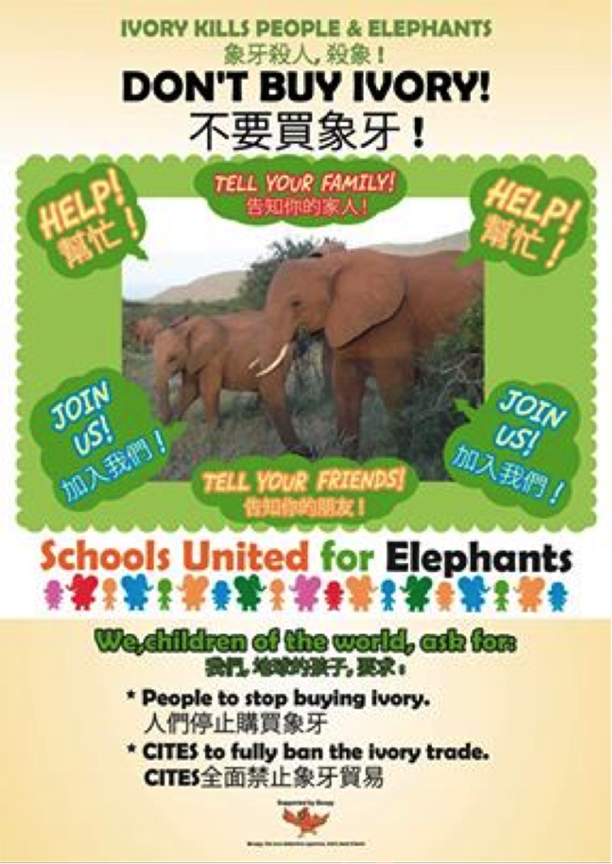The Elephant Girl: Celia Ho

Badges of wealth vary widely, from jewels to Rolex watches. In recent decades, however, there has come another one—ivory—which is regarded as both a symbol of status and a substance from which religious icons are made.
As a result, however, African elephants have been the victims of this outrageous trend.
I am Celia Ho, nicknamed ‘The Elephant Girl’ by Jane Goodall. I started to be interested in elephants when I first read the cover story “Blood Ivory” written by Bryan Christy in National Geographic. It inspired me a lot and I have also comprehended the troubles elephants are facing. For the sake of satisfying the limitless hunger of ivory collectors, at least 25,000 to 35,000 elephants are killed every year. Picture the scene. Smell the death. It’s cruel and inhumane.
Not only elephants are suffering, but also humans. Some of the money made from selling ivory is then used to purchase weapons used in the continent's various conflicts. Besides, many courageous rangers are killed every year when defending elephants and rhinos. Too many lives have been paying for the ivory trade.
Elephants are important to forest regeneration and create habitats for many animals when they disperse seeds by eating fruit. Therefore, poaching elephants affects the eco-system.

These were why I started my campaign to help them get out of this inhuman trench and inspire others to protect elephants with essays, songs, videos and public speech. With people united, we can save elephants from the bloody poaching
There are basically three parts of my campaign. The first part is drawing ivory consumers’ attention so that the demand for ivory can be reduced. And the second part is educating young people, especially in China, because they have the greatest possibility to become future ivory consumers. The last part is drawing international attention on this ivory trade issue.
Everyone has his or her power, which is very influential. They can make good use of their social network, by maybe writing a status on Facebook or sending a letter to newspapers, just like I have done. They can also educate people around them and their parents, because they all have the possibility to become ivory consumers. Young people’s voices can be heard easily, and they are always noticed by others.
Tell people around you not to buy ivory.
The supply of ivory is no longer sustainable. It is time for us to rectify our mistakes before an irreversible disaster occurs. Please stop devastating a species that is already losing ground. Before they become extinct, let’s save them, and our planet as well.
